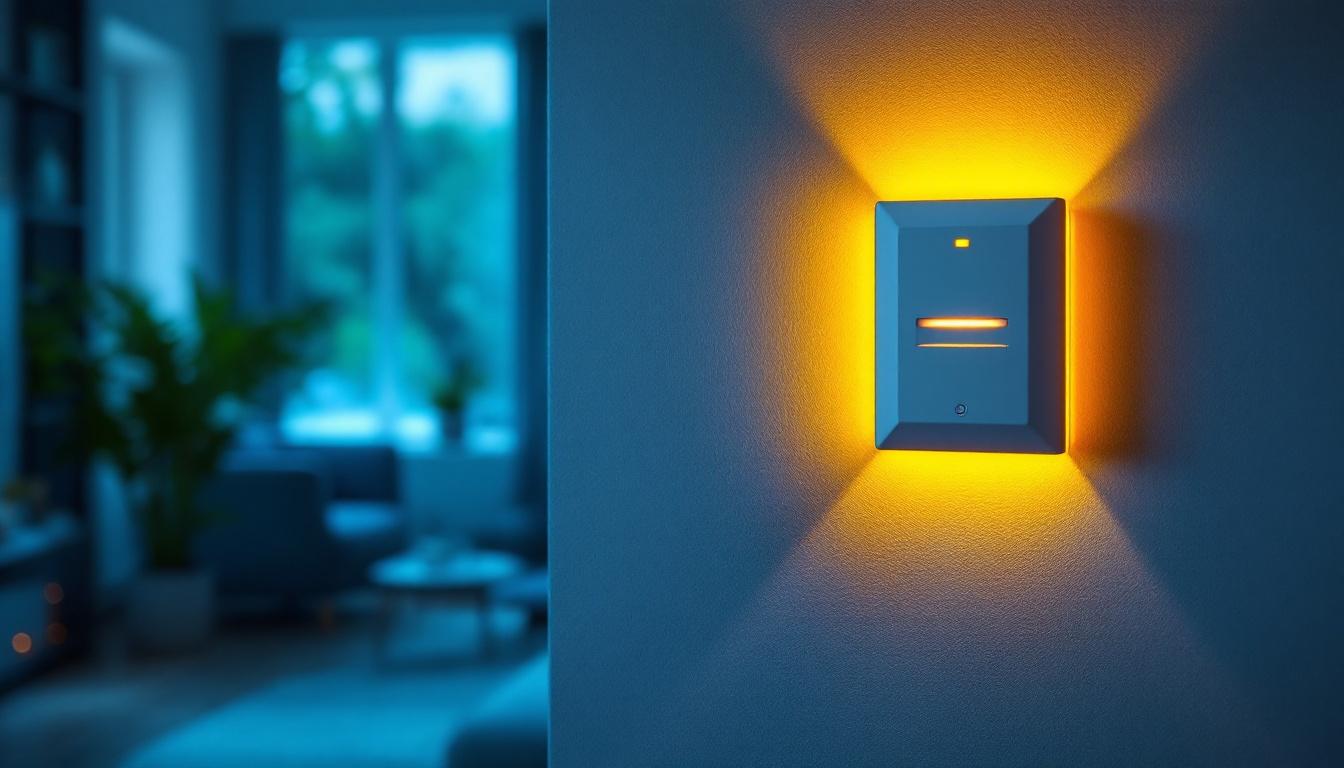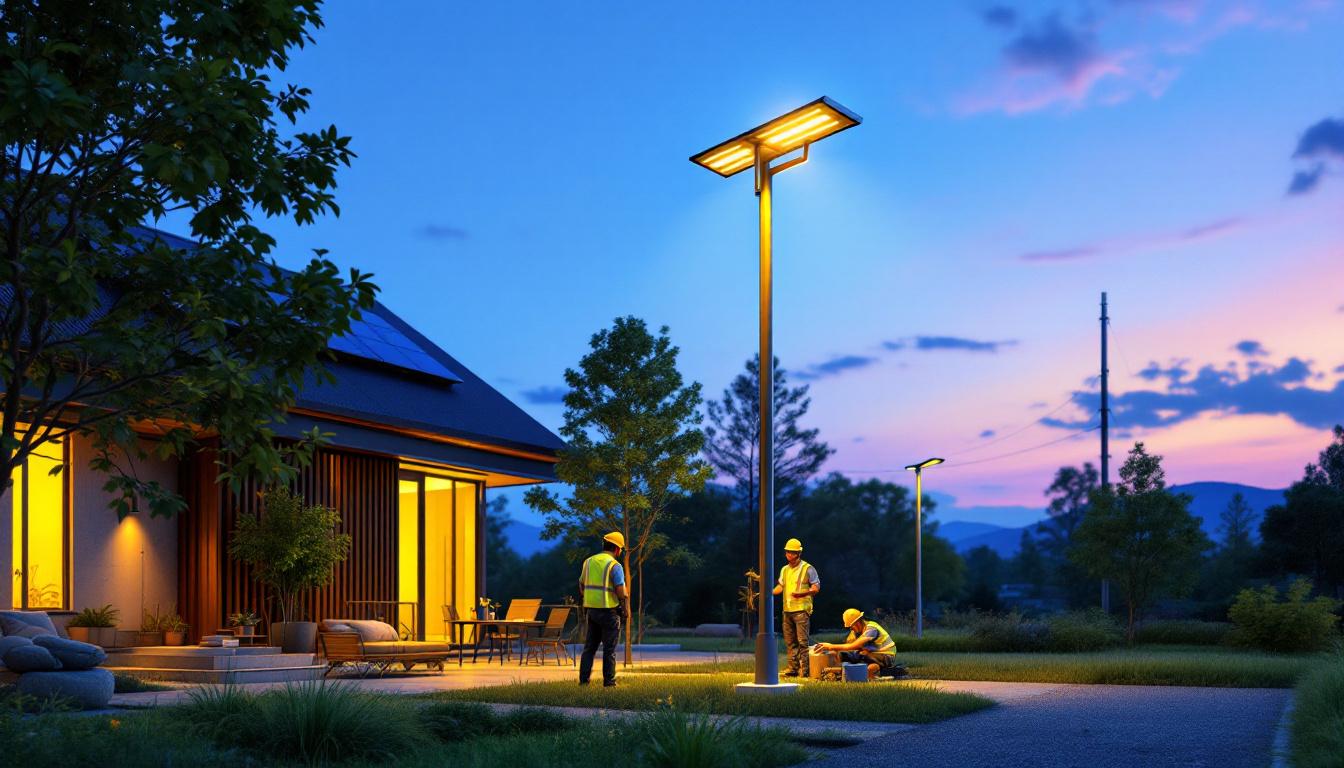
In the ever-evolving world of lighting design, clients have increasingly sophisticated expectations from lighting contractors. The rise of smart technology, sustainability concerns, and the desire for aesthetic appeal have transformed the landscape of lighting projects. Understanding what clients expect can make the difference between a successful project and a missed opportunity. This article delves into key areas that lighting contractors should focus on to meet and exceed client expectations.
The initial consultation is a critical phase in any lighting project. Clients often come with a vision, but it is the contractor’s responsibility to clarify and expand upon that vision. During this stage, it is essential to ask probing questions that uncover not just the aesthetic preferences but also the functional requirements of the space. For instance, understanding how the space will be used can guide decisions on brightness levels, color temperatures, and fixture types.
Moreover, clients may have specific concerns regarding energy efficiency and sustainability. Discussing options such as LED lighting or smart controls can demonstrate a contractor’s commitment to modern solutions. Engaging in an open dialogue allows contractors to build trust and establish a collaborative relationship. Additionally, it is beneficial to discuss the long-term maintenance of the lighting system, as this can influence the client’s choices and budget. By addressing these aspects early on, contractors can help clients make informed decisions that align with their lifestyle and values.
Clients often have strong opinions about design aesthetics. They may be influenced by trends, personal tastes, or even the architectural style of the building. A successful lighting contractor should be well-versed in various design styles, from minimalist to industrial, and be able to suggest lighting solutions that complement these styles. Understanding the nuances of each design approach allows the contractor to tailor their recommendations effectively, ensuring that the final outcome resonates with the client’s vision.
In addition to understanding design preferences, it is crucial to present clients with visual aids. Mood boards, 3D renderings, and sample fixtures can help clients visualize the end result. This not only enhances communication but also ensures that the contractor and client are aligned on the project’s direction. Furthermore, discussing the psychological effects of lighting can enrich the conversation. For example, warm lighting can create a cozy atmosphere, while cooler tones may enhance focus in a workspace. By educating clients on these aspects, contractors can elevate the design process and foster a deeper appreciation for the role of lighting in their environment.
The lighting industry is rapidly advancing, with new technologies emerging regularly. Clients expect contractors to be knowledgeable about the latest innovations, such as smart lighting systems, tunable white lighting, and energy-efficient fixtures. Understanding how these technologies work and their benefits can help contractors make informed recommendations that align with client goals.
Furthermore, being familiar with the technical specifications of various products is essential. Clients may ask about lumens, wattage, and color rendering index (CRI). A contractor should be able to explain these terms in layman’s language, ensuring the client feels informed and confident in their choices. Additionally, staying updated with industry trends, such as the shift towards LED technology and the integration of IoT (Internet of Things) in lighting solutions, allows contractors to provide cutting-edge options that enhance both functionality and aesthetics. This knowledge not only empowers clients but also positions contractors as trusted advisors in the decision-making process.
Installation is a critical aspect of any lighting project. Clients expect contractors to adhere to safety standards and local building codes. This includes understanding electrical requirements and ensuring that all installations are compliant. Failure to do so can lead to costly reworks and potential safety hazards.
Moreover, clients appreciate contractors who can manage the installation process efficiently. This includes coordinating with other trades, managing timelines, and minimizing disruptions. Clear communication throughout the installation process can help manage client expectations and foster a sense of reliability. In addition, providing clients with a detailed project timeline and regular updates can enhance their experience, making them feel involved and informed. By anticipating potential challenges and proactively addressing them, contractors can further build trust and demonstrate their commitment to delivering a high-quality outcome. Ultimately, a well-executed installation not only meets the technical requirements but also elevates the overall client satisfaction, paving the way for future collaborations.
Timeliness is often a top priority for clients. They expect contractors to deliver projects on schedule and within budget. Effective project management skills are essential to meet these expectations. This involves meticulous planning, resource allocation, and proactive problem-solving. A well-structured timeline, complete with milestones and deadlines, can serve as a roadmap for the project, ensuring that all team members are aligned and accountable. Utilizing project management software can further enhance this process, allowing for real-time updates and adjustments as needed.
Clients appreciate transparency when it comes to budgeting. Providing detailed estimates and keeping clients informed of any changes can build trust. If unexpected challenges arise, communicating these issues promptly and offering solutions can help maintain a positive relationship. Furthermore, a contractor’s ability to anticipate potential budget overruns and present alternative strategies can demonstrate foresight and professionalism. By regularly reviewing budget performance against the original plan, contractors can identify areas for cost savings, ensuring that the project remains financially viable while still meeting the client’s vision.
Even after the installation is complete, clients expect ongoing support. This may include troubleshooting issues, providing maintenance advice, or offering warranty services. A contractor who is willing to be available for follow-up questions or concerns demonstrates a commitment to customer satisfaction. This ongoing relationship can significantly enhance the client’s overall experience, as they feel valued and supported long after the initial project has concluded.
Additionally, offering training on how to use smart lighting systems or adjust settings can enhance the client experience. This not only empowers clients but also showcases the contractor’s expertise and dedication to service. Providing comprehensive user manuals and access to online resources can further enrich the client’s understanding and utilization of their new systems. Regular check-ins or scheduled maintenance visits can also foster a sense of reliability and assurance, reinforcing the contractor’s role as a trusted partner in the client’s ongoing journey with their new installations. Such proactive engagement can lead to referrals and repeat business, ultimately benefiting both the client and the contractor in the long run.
With growing awareness of environmental issues, clients are increasingly seeking sustainable lighting solutions. This includes energy-efficient fixtures, smart controls that reduce energy consumption, and options for using renewable energy sources. Contractors should be prepared to discuss the benefits of these solutions, including long-term cost savings and reduced carbon footprints.
Moreover, being knowledgeable about government incentives or rebates for energy-efficient installations can be a significant selling point. Clients appreciate contractors who can guide them through the financial aspects of sustainability, making it easier for them to make informed decisions.
Clients are often concerned about the long-term impact of their lighting choices. This includes considerations about maintenance, durability, and energy costs. Contractors should be able to provide insights into the lifespan of different fixtures and the potential savings associated with energy-efficient options.
By discussing the long-term benefits of sustainable lighting solutions, contractors can position themselves as trusted advisors. This not only enhances client satisfaction but can also lead to referrals and repeat business.
The rise of smart technology has transformed the way clients approach lighting. Smart lighting systems offer convenience, customization, and energy savings. Clients expect contractors to be knowledgeable about the various smart lighting options available, including app-controlled systems, voice-activated devices, and automated scheduling.
Contractors should be prepared to explain how these systems can enhance the client’s lifestyle. Demonstrating the ease of use and the benefits of integrating smart technology into their lighting design can significantly influence a client’s decision-making process.
layered lighting is a design technique that combines ambient, task, and accent lighting to create a balanced and functional space. Clients increasingly expect contractors to understand and implement this approach. By educating clients on the importance of layering light, contractors can help them achieve a more dynamic and visually appealing environment.
Furthermore, showcasing examples of successful layered lighting projects can inspire clients and help them visualize the potential of their own spaces. This not only enhances the contractor’s credibility but also fosters a collaborative design process.
Effective communication is the backbone of any successful project. Clients expect contractors to keep them informed at every stage of the process. This includes setting clear expectations, providing regular updates, and being responsive to inquiries. Contractors who prioritize communication can build strong relationships with their clients, leading to greater satisfaction and potential referrals.
Additionally, being able to translate technical jargon into understandable language is crucial. Clients may not have a background in lighting design, so explaining concepts in simple terms can enhance their understanding and comfort level.
Trust is a vital component of the client-contractor relationship. Clients want to feel confident that their contractor has their best interests at heart. Building rapport through honesty, integrity, and reliability can help establish this trust. Following through on promises and being transparent about challenges can reinforce a contractor’s reputation as a dependable partner.
Moreover, taking the time to understand a client’s unique preferences and concerns can foster a sense of partnership. Clients are more likely to return to contractors who take the time to listen and address their needs.
In the competitive field of lighting design and installation, understanding client expectations is paramount for success. By focusing on effective communication, technical expertise, project management, and sustainability, lighting contractors can position themselves as trusted advisors in the eyes of their clients. As the industry continues to evolve, staying informed about trends and technologies will further enhance a contractor’s ability to meet and exceed client expectations.
Ultimately, a contractor’s commitment to understanding and fulfilling client needs can lead to lasting relationships, repeat business, and a strong reputation in the market. Embracing these principles will not only elevate the contractor’s professional standing but also contribute to the overall satisfaction and delight of their clients.
As you strive to meet and exceed your clients’ expectations in lighting design and installation, partner with LumenWholesale for an unbeatable advantage. Our spec-grade lighting products not only align with the industry’s highest standards but also come at the best wholesale prices, directly to you. Say goodbye to inflated markups and hello to a vast selection of reliable, high-performance lighting that will impress your clients and enhance your projects. With free shipping on bulk orders, LumenWholesale is your go-to source for quality, affordability, and convenience. Elevate your lighting game and discover wholesale lighting at the best value today.

Explore the transformation of wall receptacles in the lighting industry, from basic functionality to smart technology integration, enhancing both convenience and energy efficiency in modern homes..

Discover how solar panel light poles are revolutionizing the lighting industry, offering eco-friendly and cost-effective solutions for contractors.

Discover why lighting contractors should prioritize fluorescent strip lights in their projects.

Discover common indoor stairway wall lighting mistakes contractors make and learn expert tips to enhance safety, aesthetics, and efficiency—boost your projects today!.